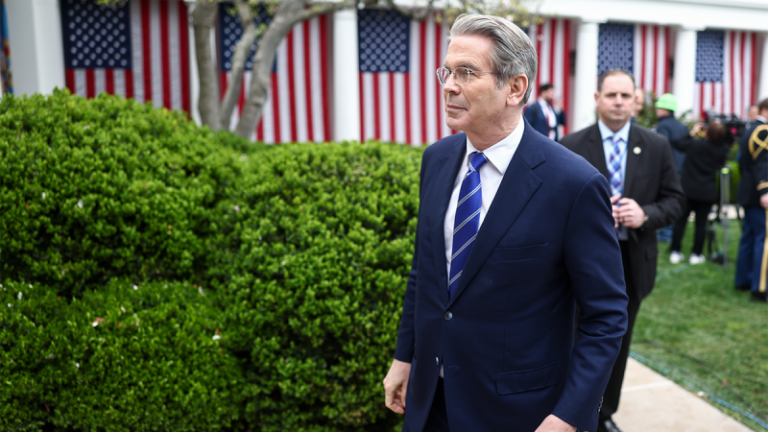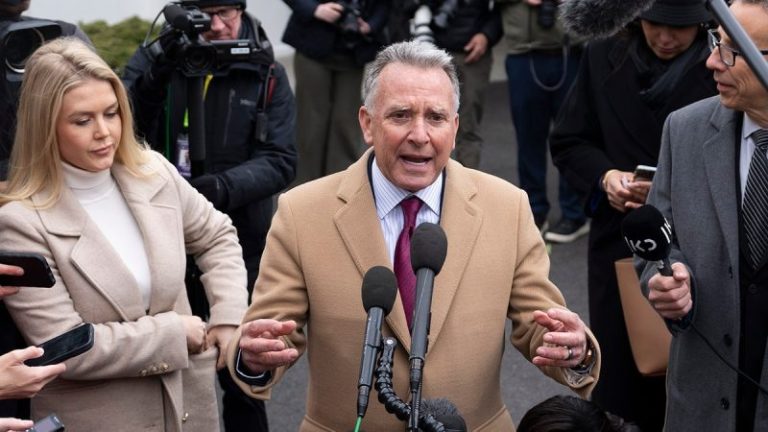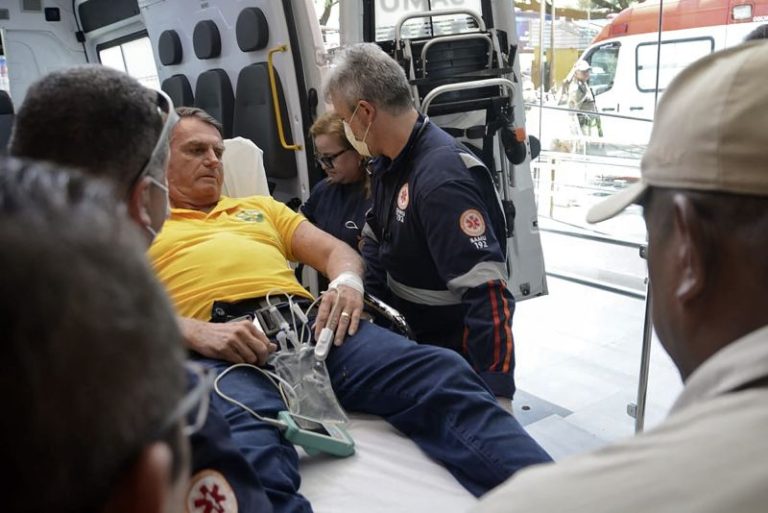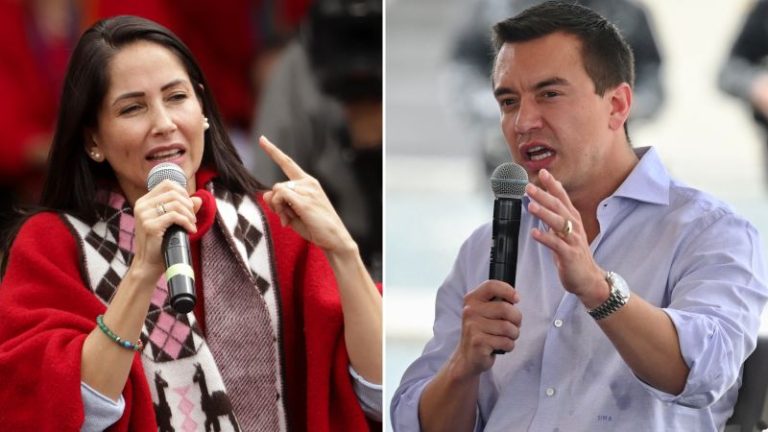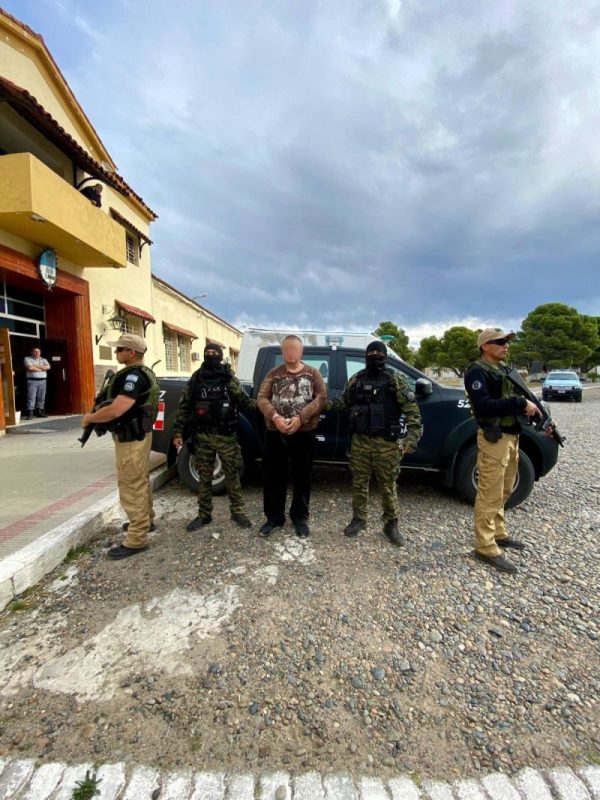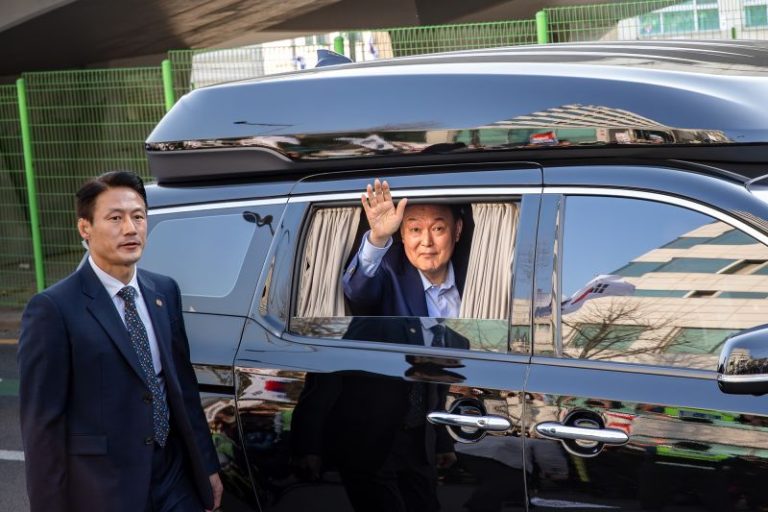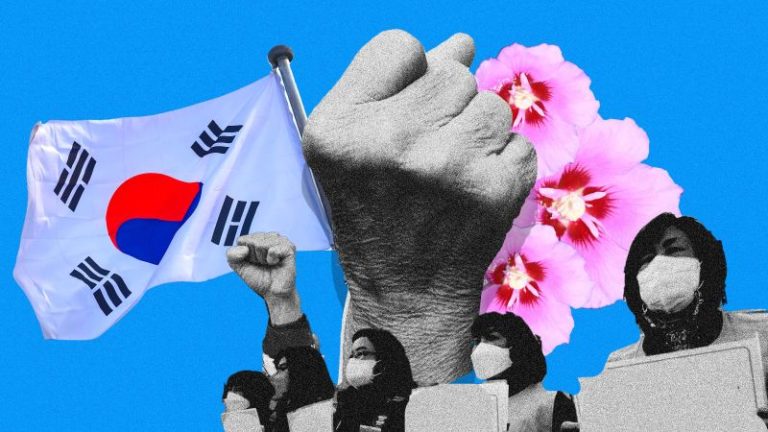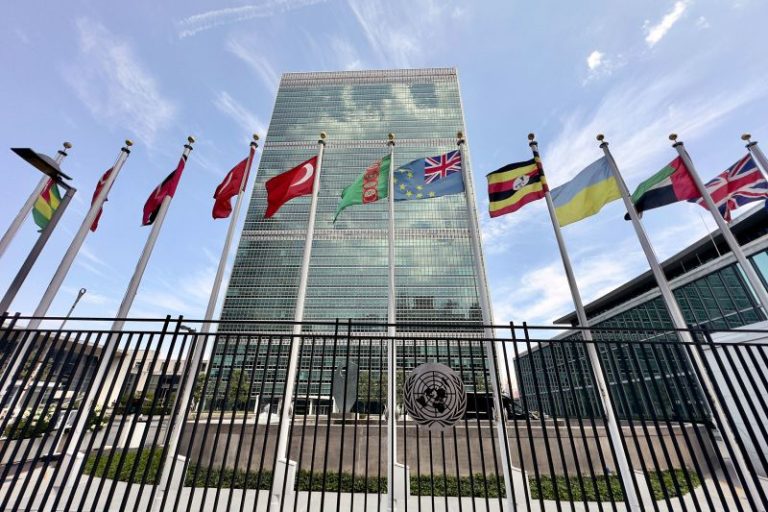“Women and dried pollock need to be beaten every three days for better taste” – so goes an old saying that was common in South Korea in the 1960s when Choi Mal-ja was growing up in a small city in the country’s southeast.
Back then, male violence against women was widely accepted. So when Choi bit off part of the tongue of a man who allegedly tried to rape her, it was she who was labeled the aggressor and jailed for grievous bodily harm.
At the time, Choi was 18 and living at home with her family. Now 78, she’s trying to clear her name in the hope that vindication will pave the way for other victims of sexual crime in South Korea, one of the world’s most advanced economies but one where society remains deeply patriarchal.
After Choi’s push for a retrial was rejected by courts in the city of Busan, she took her case to the Supreme Court. The top court ruled in her favor, sending the case back to Busan, where evidence will be called in coming months.
Experts say the verdict could rewrite the legal precedent set by her original trial, with far-reaching consequences for other women.
“The court must admit the fact that its unfair ruling has turned one person’s life upside down, and take responsibility with just judgement now,” Choi wrote.
One spring evening in 1964, Choi, then a teenager, stopped to help a man who was asking for directions in Gimhae, South Gyeongsang province.
After walking with him for a few meters, Choi gave him further directions and turned around to go back home, but he tackled her to the ground.
“I was feeling woozy, like I’d been hit on the head with a hammer,” Choi told a local TV show in 2020.
Choi lost consciousness for a short while, but she remembers the man climbing on top of her and trying to force his tongue inside her mouth. She was only able to escape by biting 1.5cm (0.6 inch) of his tongue off, she said.
More than two weeks later, the man, who is not named in court documents, and his friends forced their way into Choi’s house and threatened to kill her father for what Choi had done.
Ignoring her claims of sexual assault, the man sued Choi for grievous bodily harm, leading her to sue him for attempted rape, trespassing and intimidation.
The police deemed Choi’s argument of self-defense reasonable; however, prosecutors in Busan thought otherwise.
They dropped the attempted rape charge against her assailant and accused Choi of grievous bodily harm, according to court documents.
In 1965, Choi was sentenced to 10 months in prison and two years of probation, a harsher punishment than that of the aggressor, who was sentenced to six months of prison and one year of probation for trespassing and threatening.
“It didn’t take a long time for the victim of a sexual crime to be turned into a perpetrator, nor did it take the strength of many people,” Choi wrote in a letter to the Supreme Court last year, as part of her application for a retrial.
Choi also claimed that her rights were infringed upon during the investigation and trial process, during which she and her supporters say she was handcuffed at one point and later made to undergo a test to prove her virginity, the result of which was made public.
Until recent times, the social norm in South Korea was for women to support the men in their family. For example, when the country was developing rapidly after the 1950-53 Korean War, daughters were commonly sent to work at factories to financially support their brothers’ education.
And until the 1980s, South Korea was so focused on rebuilding from the devastation of the war and Japan’s brutal occupation before that, that fighting for women’s rights was considered “a luxury,” according to Chung.
In 1983 the Korea Women’s Hot-Line counseling center opened to campaign against “all institutions, customs and conventions that impose inhumane lives on women,” and establish a “just and peaceful family and society,” according to its statement.
At the time, there was no word for domestic violence.
“This is the 1980s. So, imagine what Choi Mal-ja had to go through for her case, in the 1960s,” said Kim.
According to Choi’s testimonies, prosecutors and judges asked her during the investigation and trial whether she would like to marry the aggressor to conclude the case.
Becoming his wife, so the theory went, might make amends for his injuries, as no other woman would want to marry a man with half a tongue.
Wang Mi-yang, the president of the Korea Women Lawyers Association, said the 1965 ruling reflected the “social prejudice and distorted views on victims of sexual violence that remained deeply rooted in our society.”
Anti-sexual violence movements flourished in the 1990s and even included campaigns seeking justice for “comfort women,” a euphemism for the victims of sexual slavery enforced by the Japanese military in Korea during and before World War II.
For many years, “comfort women” kept their trauma secret to avoid shame and humiliation, but they finally spoke out, becoming what Chung calls South Korea’s “first MeToo movement.”
“These people lived 70 years, unable to talk about what they’ve experienced, because they would get blamed… but them revealing themselves to the world means society has changed that much,” Chung said.
The global #MeToo movement properly took hold in South Korea in 2018, holding powerful men to account and pushing the government to enforce harsher punishments for crimes of sexual violence.
Changing attitudes motivated Choi Mal-ja to seek a retrial.
“The girl’s life, which couldn’t even blossom, was forever unfair and in resentment… the country must compensate for my human rights,” Choi wrote in her letter to the Supreme Court.
Kim, from the Korea Women’s Hot-Line counseling center, said while there’s still work to be done, attitudes toward victims of sexual violence have changed dramatically.
“The perception that the sexual aggressor is at fault, not the victim, that women are more vulnerable to sexual crimes, and it’s the government’s responsibility to punish the perpetrator and protect the victim is so widely spread out among the people now,” she said.
With the help of the Korea Women’s Hot-Line, Choi requested a retrial in 2020, but the court denied her application, calling the original ruling “inevitable” due to the “circumstances of the time.”
Choi condemned that decision as “truly embarrassing.”
“I was so tired, having come such a long way, that I wanted to lay everything down,” she wrote in her letter last year to the Supreme Court.
But she persisted, driven by the thought of “women of future generations.”
A petition by the Korea Women’s Hot-Line gathered more than 15,000 signatures and Choi started a one-person relay protest in front of the Supreme Court for a month to pressure the highest court to annul the original decision to deny a retrial.
In total, 42 people including Choi took part, swapping out after each day of protest, to show their solidarity with her cause.
The Supreme Court granted her request, calling Choi’s testimonies about unfair treatment during investigation by the prosecutors “consistent” and “credible,” adding that there was no evidence that contradicted her claims.
“Every drop of water pierced the rock. When I heard the news, I shouted hooray!” Choi said in a live-streamed press conference after the Supreme Court’s ruling in December.
The retrial will be held at the Busan District Court, which originally dismissed Choi’s retrial application in 2021.
Choi’s long fight for justice is well known in South Korea.
Her case is even cited in the Criminal Procedure Act textbook – used to educate generations of student lawyers – as an example of using excessive force in defense.
A successful retrial could expand the definition of self-defense and set new protections for future victims of sexual violence, said Kim from the Korea Women’s Hot-Line.
“I think it will become a very important case in getting women’s rights to defense, their responses against domestic or sexual violence, acknowledged more widely,” she said.
In 2017, a woman was found guilty of grievous bodily harm, like Choi, for biting the tongue of a man who allegedly tried to rape her.
The Incheon District Court partially acknowledged the man’s fault, but sentenced the woman to six months of imprisonment and two years on probation, citing the severity of the injury and “the failure to reach a settlement.”
Kim said there’s still a perception among investigators and the courts that victims are responsible for sexual violence, particularly in cases involving “the victim going to the aggressor’s house, drinking together or going to a place where they’re left alone.”
According to police statistics, more than 22,000 rapes and indecent assaults occurred in 2023 in South Korea.
It’s unclear how many victims were charged after trying to defend themselves.
Kim said there were still “many cases of women’s right to defense not being recognized.”
In her letter to the Supreme Court, Choi said old, victim-blaming beliefs must change if women’s rights are to improve in South Korea.
“I believe that women will only be able to protect themselves from sexual abuse and make a world without sexual violence when the court indisputably redefines victim and perpetrator, recognizes self-defense, and changes the outdated law,” she wrote.
This post appeared first on cnn.com

